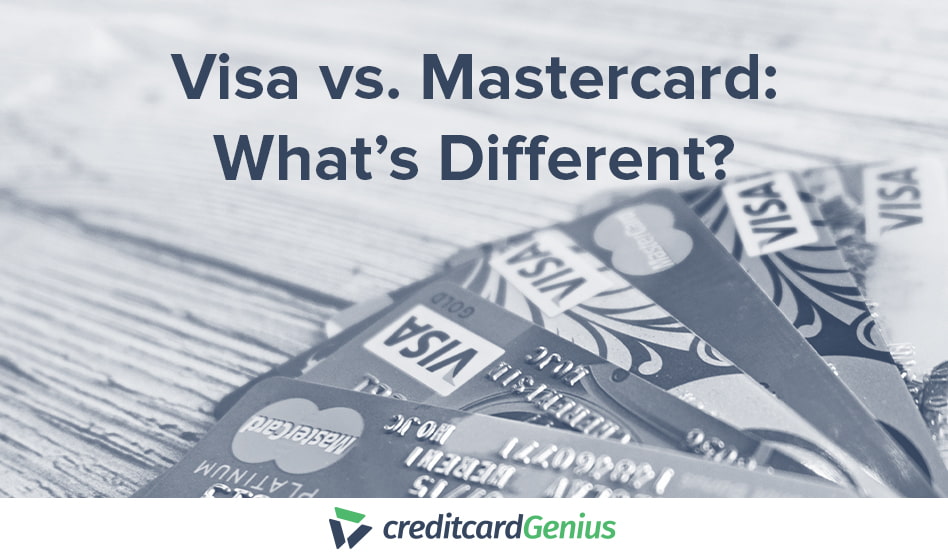A joint credit card account gives both cardholders access to the account and shared responsibility for the credit card debt. Joint credit cards aren’t the same as supplemental cards, which are issued to authorized users who can use the credit card but who are ultimately not responsible for the debt.
If you and your partner share finances and pay bills together, using a joint account can make the process easier. Plus, with two people using the credit card account, you’ll earn rewards at a much faster rate.
The thorough study below covers what joint credit cards are, how they work, and how you can decide if getting one is the right choice for you. Since it can be hard to find joint credit cards, take a look at our recommendations to get started.
Key Takeaways
- Joint credit cards share a single credit limit and both cardholders are responsible for the debt.
- Responsible credit card use can improve the credit score for both cardholders.
- Joint credit cards can help people earn rewards at a faster rate since two cardholders are making purchases.
Never miss an amazing deal again + get our bonus 250+ page eBook for FREE. Join 50,000 other Canadians who receive our weekly newsletter – learn more.
What are joint credit cards?
If two people (like a spouse/partner, close friend, or family member) share a credit card account and have equal access to the account (and the debt), it’s considered a joint credit card account.
This differs from having a credit card account and adding someone as an authorized user. Authorized users will get a supplementary credit card, but ultimately, they’re not responsible for the debt – the primary cardholder is.
With a joint credit card, both people are responsible for all aspects of the card and the account.
How joint credit cards work
Joint credit cards allow full access to spending, rewards, and debt for all authorized users involved. You're both considered co-applicants and have the same privileges and responsibilities.
Once you’re approved for the card, the issuer grants you a credit limit, and both people are issued cards so they can start making purchases.
Since it’s a shared account, the credit limit is also shared. As you both make purchases, you borrow from that limit, so pay attention to account activity, or you may overspend.
Not all credit cards are available for joint holders, so be careful when choosing a card.
Other types of joint loans and accounts
Credit cards might be just one of the accounts you share with your partner. You may also have:
- Bank accounts
- Mortgages
- Car loans
- Lines of credit
You’re not considered a shared account holder on loans that are only under your partner's name. For instance, if they have a student loan, it’s technically not a shared account or shared debt.
The best joint credit cards in Canada
If you’re ready to open a joint credit card account, shop for a card from our top picks:
| Card name | Welcome offer | Annual fee/income requirements | Features | Apply now |
|---|---|---|---|---|
| BMO eclipse Visa Infinite* Card |  $150 GeniusCash + Up to 80,000 bonus points, first year free (terms) $150 GeniusCash + Up to 80,000 bonus points, first year free (terms) | * $120 * $60,000 personal or $100,000 household | * 10% bonus points for adding a shared user * $50 supplemental card fee * Get a $50 anniversary lifestyle credit to spend however you want | Apply Now |
| Tangerine® Money-Back World Mastercard®* |  $120 GeniusCash + $120 (terms) $120 GeniusCash + $120 (terms) | * $0 * $50,000 personal or $80,000 household | * No fee for additional cardholders * Earn an extra 10% cash back for the first 2 months, up to $1,000 spent * Select two to three spend categories for earning cash back | Apply Now |
| Scotiabank Scene+ Visa Card | 10,000 bonus points (terms) | * $0 * $12,000 personal | * No fee for additional cardholders * Up to 5,000 bonus points * Four ways to redeem points for high value | Apply Now |
| CIBC Dividend® Visa Infinite* Card | 10% cash back for the first 4 months, first year annual fee rebate (terms) | * $120 * $60,000 personal or $100,000 household | * First year fee waived for main cardholder and three supplemental cardholders * 10% cash back for the first four months, up to $2,500 in spend | Apply Now |
Primary vs secondary credit cardholders
You might think that since you’re opening a joint account, both cardholders are treated differently. However, most credit card issuers will designate one person as the primary cardholder and the other as secondary.
These distinctions don’t really affect how you use the card or what privileges either of you has. Really, it’s just a way for the card issuer to determine a primary contact person. Both of you are still equally responsible for managing the account and paying all of the debts charged to the card.
You may see primary and secondary cardholders referred to as cardholders vs co-borrowers, possibly even secondary joint credit card holders.
So, who's responsible for the debt?
Both cardholders are responsible for the debt that’s charged to a joint credit card. That’s why it’s so important to carefully consider opening a joint credit card before applying. If either person misses payments or goes over the credit card limit, both people’s credit scores can drop.
If you no longer want to be listed as a joint credit cardholder, it’s vital that you contact the credit card issuer, or you may continue to be responsible for purchases the other cardholder makes.
How to apply for a joint credit card
So, you’ve found the perfect card for the two of you. Here are the basic steps you’ll have to take to apply for a joint credit card:
- Select a credit card that allows joint owners, not just authorized users
- Check the credit score and income requirements. This can help you narrow down which cards you’re eligible for or help you gauge whether you’ll be approved for the card you picked
- Gather application information for both people. For instance, you’ll need both Social Insurance Numbers, contact information, employment and income details, and homeownership status.
- Fill out and submit the application. Many card issuers let you apply online, as long as you have all the required information. Usually, it only takes a few minutes to fill it all out.
- Wait for approval. Some card issuers give instant approval or notify you of their decision immediately, while others take days to contact you. If approved, you’ll both get your cards in the mail within a few days or weeks.
Pros and cons of joint credit cards
Joint credit cards aren't for everyone, and they come with pros and cons. Here are a few of the most obvious benefits and disadvantages:
Pros
1. Earn extra rewards
A major advantage of getting a joint credit card is the rewards. You can share in the benefits credit cards provide, and you can both collect and pool your rewards into one big pot.
Some cards, including the BMO eclipse Visa Infinite* Card, even offer bonus points when you add another cardholder to the account. This may or may not include joint account holders, so read the fine print – but it's worth looking into.

2. Easier to manage finances
If you have joint accounts, it can be much easier to manage your money. Rather than having multiple separate credit card accounts to pay on your own, your combined income can manage them between the two of you.
3. Both people build credit
As co-borrowers, with both your names on the application, both of you will build credit as you use the joint credit card. All activity is reported to the credit bureau, regardless of who does the spending and/or makes the bill payments.
4. Higher credit limit approval
It isn't guaranteed, but the chances are good that you'll qualify for a higher credit limit when you join forces with a partner.
Cons
Here are a few concerning things to consider regarding joint credit cards:
1. One person's credit can affect the other's
While it's true that both people build credit with a joint card, it's also true that both people can suffer from poor financial habits. If one person has poor credit and/or poor spending habits, the other person is directly affected.
Essentially, if one person's poor habits cause their credit score to decrease, the other person's score can go down too.
2. Can cause disagreements
Money is often the cause of friction in a relationship, and joint credit cards can contribute to this.
It's also important to keep in mind that in the event of a breakup, a joint credit card is one more thing you'll have to deal with. It can take time and effort to remove someone from a joint card, and splitting the debt can get tricky.
Who should consider a joint credit card?
If both people have good credit scores and are financially responsible, a joint credit card could be a convenient way to manage household expenses.
It can also be helpful in cases where one partner has poor credit and the other has good credit, and/or when one has more income than the other and therefore qualifies for better, more premium credit cards.
Joint credit cards can also be convenient options for business partners who require a shared account to make business transactions.
Roommates might consider a joint credit card, too, under the right circumstances.
FAQ
Is a spouse responsible for credit card debt in Canada?
With joint credit cards, both spouses are responsible for the debt. With a typical credit card, though, only the spouse who applied for the card is responsible, even if the other is an authorized user.
What is a joint credit card?
A joint credit card is a credit account owned by two people who have equal access and responsibility. Both users apply for the card and can spend as they like since both are responsible for the debt.
Is a joint credit card a good idea?
If two partners share expenses and both have responsible spending habits, a joint credit card can be very convenient and valuable. It can also help if one partner has poor credit and the other wants to help them improve it.
What is the best joint credit card?
There are several joint credit cards to choose from in Canada, including the BMO eclipse Visa Infinite Card and Tangerine Money-Back World Mastercard. Both offer great welcome bonuses, high rates of return, and decent insurance coverage.
Should couples have a joint credit card?
Not all couples should have a joint credit card, but it can be a helpful financial tool for some. Especially if they have strong communication skills and healthy spending habits, these cards can be both valuable and convenient.
creditcardGenius is the only tool that compares 126+ features of 228 Canadian credit cards using math-based ratings and rankings that respond to your needs, instantly. Take our quiz and see which of Canada's 228 cards is for you.










 GC:
GC: 

































Comments
Leave a comment
Required fields are marked with *. Your email address will not be published.